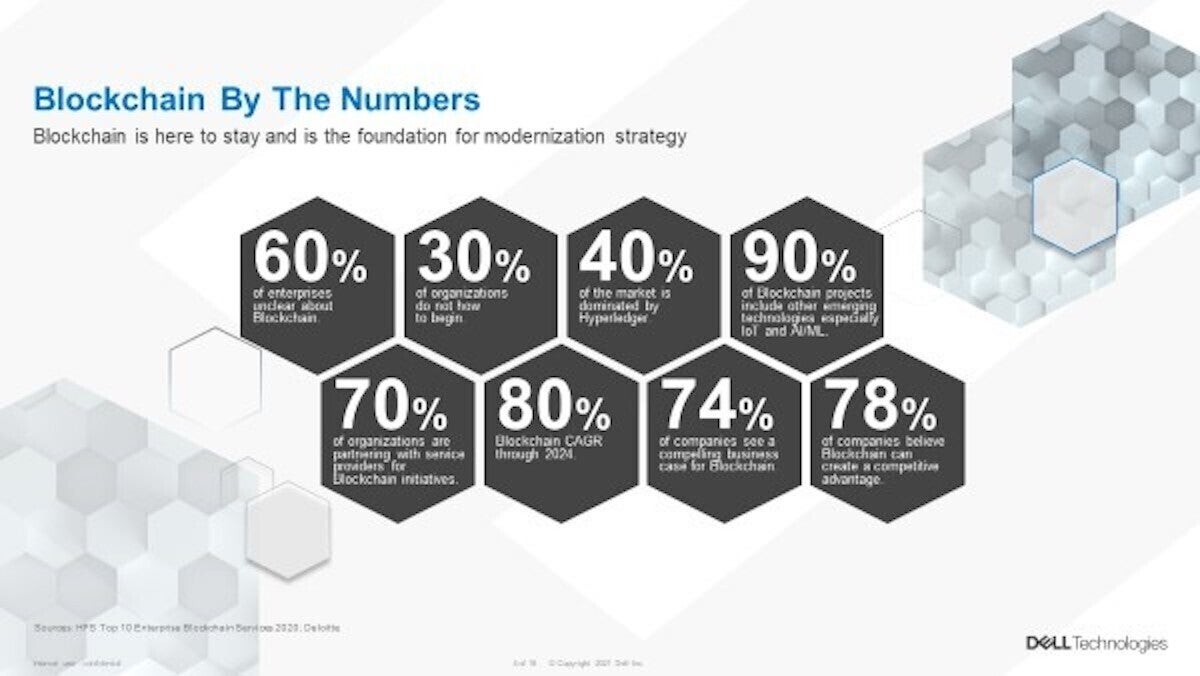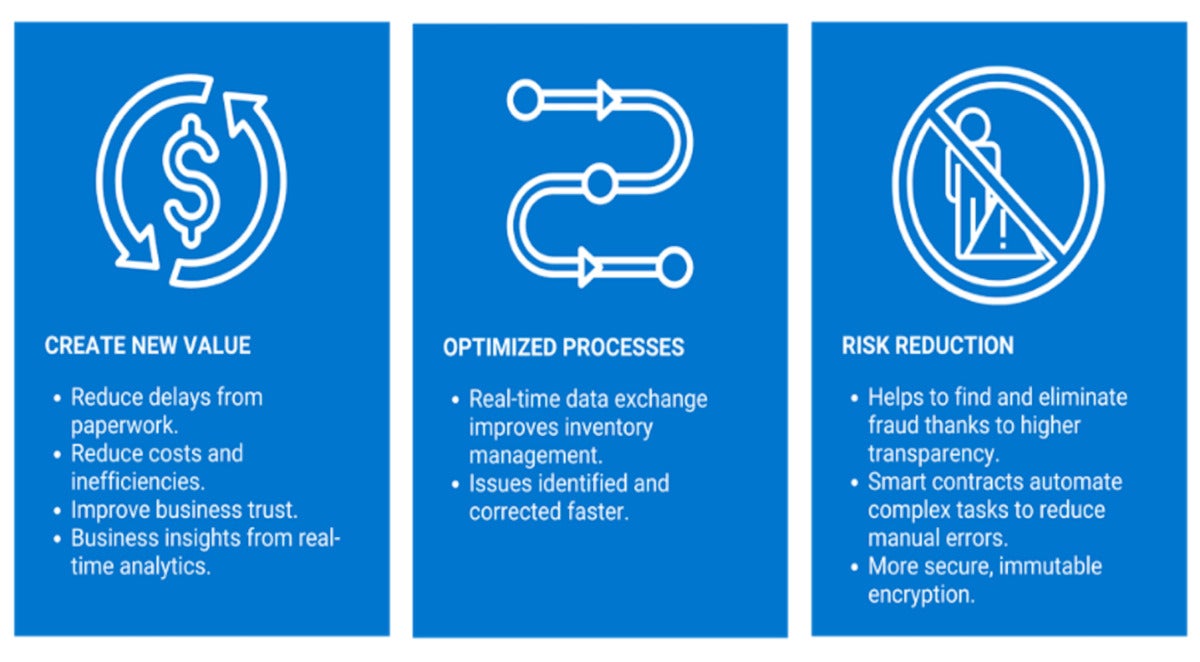At the most basic level, Blockchain enables companies to securely share and reconcile transactional data on an immutable digital ledger. When implemented on a cross-organization permissioned network, blockchain fosters trust in multi-company cross-business transactions, by ensuring each and every transaction is validated using a consensus algorithm before a new block can be added to the blockchain. This process uniquely ensures transparency, as well as data verification and security.
Yet according to HFS Research, 60 percent of enterprises are still unclear on what blockchain is and how to deploy it and 70% require the help of a third party to create their blockchain solution – with 78% saying blockchain will drive a competitive advantage because when done properly it delivers real business impact and value.
 Dell
DellLedger entries in the blockchain network cannot be altered or deleted It can only be added in the form of new transactions—and only after those transactions receive unanimous approval. This type of blockchain offers several unique advantages to companies that need a modern, secure way to share and store their transactional data on a multi-institutional network. Such benefits include its ability to:
- Foster trust. All members and their transactions must be authenticated, the permissioned network fosters a system of trust and accountability.
- Accelerate transaction processing. Members do not need to add their data records to a public ledger using tedious proof-of-work or proof-of-stake algorithms to verify transactions. Instead, permissioned or community ledgers often offer more efficient consensus algorithms that can achieve more transactions per second and be more scalable.
- Eliminate costs. The use of sophisticated consensus algorithms also cuts out the middleman. Companies no longer need to spend money on intermediaries to ensure transactions occur as indicated. Smart contracts save companies money by automating processes that would otherwise require more manual processing and by eliminating the need for third parties to facilitate trust.
- Secure sensitive transactions. A permissioned blockchain is especially resistant to attacks because none of the users within the network are anonymous or confidential. Even a 51% attack is implausible, as any consensus protocol edits and data additions must receive unanimous, not just majority, approval to take effect.
- Adapt in real-time to new regulations. This enhanced security also helps companies meet regulatory compliance requirements that raise the stakes for breaches. Technologies such as Hyperledger Fabric allow companies to implement a variety of pluggable features with speed and ease. That way, companies can quickly adapt to new compliance protocols imposed by the GDPR, SEC, HIPAA, FDA, or other regulatory entities.
 Dell
DellThe 100 Year Blockchain. Blockchain as an enterprise technology is here to stay. Microsoft’s recent announcementthat they were shutting down their public cloud blockchain offering with 4 months’ notice is a reminder to companies that having an on-premises solution offers more flexibility and security while providing assurances that the blockchain can safely evolve for the decades ahead.
Fastest time to value. Many blockchain technologies such as IBM Blockchain platform and VMware Blockchain have flexible deployment models that support faster scalability and growing networks, whereby new members can be added in seconds, not minutes. Customers who run this platform on a validated hardware stack such as Dell EMC VxRail Hyper-converged Infrastructure will enjoy the fastest time to value, with unparalleled performance and speed.
Seamless customization: With the Dell Technologies hardware, customers can also customize their blockchain network to work with burgeoning technologies in edge computing, IoT, artificial intelligence, and machine learning. That way, they can future-proof their blockchain with the latest applications.
Reliable scalability: Scalability is where most companies fail in their blockchain pilot programs. Dell Technologies has partnered with IBM to create an engineer-validated solution which is proven to scale quickly and reliably. It offers a repeatable process that is easy to standardize and expand as more members join the network.
Storage Matters: Blockchain performance can be dependent on the type of storage it is running on. Running on-premises, customers and CSPs can choose from multiple Dell EMC storage options including VSAN, PowerScale, PowerMax, and PowerStore to ensure maximum throughput.
Today’s hyperconnected economy has pushed companies to the brink of their technological ability. The demand for agility, coupled with the unpredictability of a globalized market, makes what was once the luxury of innovation now a necessity. To compete, companies need a system that optimizes their data storage and security to adapt to changes in real-time.
Above all else though, they need to be able to trust the peers who share their network and influence their business practices. Working with Dell Technologies and our partners, companies can pursue a path to modernization paved with the trust and transparency they need. Together, we can navigate even the most tumultuous circumstances in a global market and remain vigilant for the future.
To Learn More
Explore more AI solutions from Dell Technologies and Intel.
Copyright © 2021 IDG Communications, Inc.
